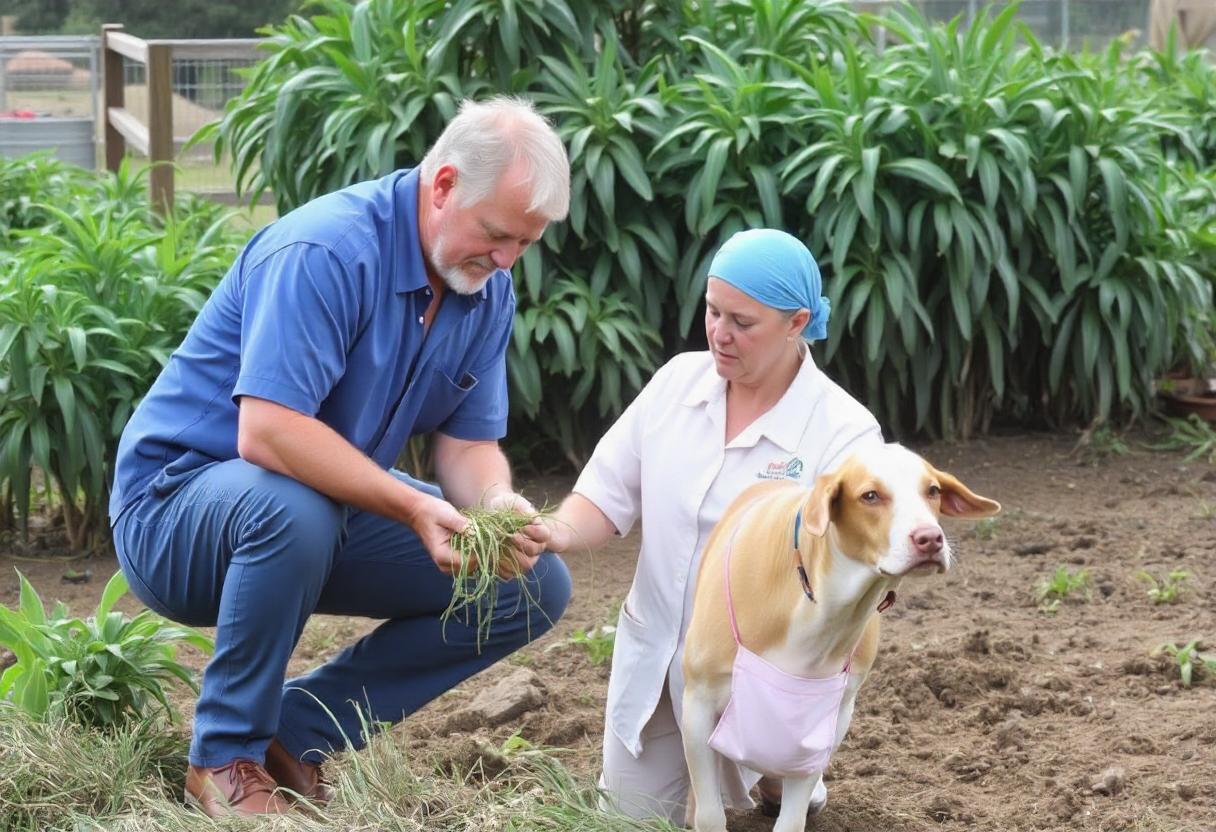
Agriculture veterinarians, also known as farm or livestock veterinarians, play an essential role in maintaining the health and well-being of farm animals. Their work is crucial for ensuring the productivity and sustainability of livestock-based agriculture, as they help prevent and manage diseases, advise on animal welfare, and contribute to the safe production of food. These professionals are vital to both animal health and the agricultural economy.
Duties and Responsibilities
Agriculture veterinarians perform a wide range of tasks related to the care of livestock. Common duties include:
- Disease Prevention and Treatment: Diagnosing, treating, and preventing diseases in livestock animals, including cattle, pigs, sheep, and poultry. They administer vaccinations, prescribe medications, and provide surgical interventions when necessary.
- Animal Welfare: Advising farmers on best practices for animal husbandry, nutrition, and living conditions to ensure the overall health and welfare of the animals. This includes guidance on proper housing, feed management, and stress reduction.
- Reproductive Health: Assisting with breeding programs, including artificial insemination and pregnancy management. Agriculture vets help improve reproductive efficiency and manage issues related to fertility and calving.
- Health Monitoring and Biosecurity: Monitoring herd health and implementing biosecurity measures to prevent the spread of diseases. They may inspect animals for signs of illness and develop protocols to manage disease outbreaks.
- Food Safety and Public Health: Ensuring that livestock raised for meat, dairy, or other products are healthy and free from diseases that could pose a risk to public health. This includes overseeing the proper use of antibiotics and ensuring animals meet safety standards before they enter the food supply chain.
- Education and Training: Providing education to farmers and farm workers on how to care for animals, prevent diseases, and recognize early signs of illness. They may conduct workshops or training sessions on animal health management.
Required Skills and Qualifications
Agriculture veterinarians need a combination of technical skills, practical knowledge, and educational credentials to perform their jobs effectively. Key qualifications include:
- Veterinary Degree: A Doctor of Veterinary Medicine (DVM) degree is required to practice as a veterinarian. Specialized training or experience in livestock and farm animal care is often necessary for those working in agriculture.
- Analytical and Diagnostic Skills: The ability to diagnose diseases and medical conditions accurately is crucial. Agriculture vets must be skilled in analyzing symptoms, conducting tests, and interpreting results.
- Problem-Solving Abilities: Vets in agriculture often face complex health challenges that require innovative and practical solutions. They need strong problem-solving skills to address health issues, especially in large herds.
- Communication Skills: Effective communication with farmers and farm staff is essential for educating them about animal care practices, disease prevention, and treatment options.
- Physical Stamina: The job can be physically demanding, as agriculture vets often work long hours, travel to different farms, and handle large animals.
Work Environment
Agriculture veterinarians typically work in rural or semi-rural settings, where they visit farms, ranches, and livestock facilities. Their work may involve:
- Field Work: Traveling to different farms and ranches to inspect animals, provide medical care, and advise farmers on health practices. They may work outdoors in various weather conditions.
- Clinical Work: Performing surgeries and medical procedures either at a dedicated veterinary clinic or in a mobile facility. Some veterinarians may operate out of a clinic that specializes in farm animal care.
- On-Call Duties: Agriculture vets often provide emergency services, responding to urgent health issues that arise with livestock. This may involve working irregular hours, including nights and weekends.
Career Opportunities
There are various career paths available for agriculture veterinarians, including:
- Private Practice: Many agriculture vets work in private practice, serving individual farms or ranches. They may operate their own veterinary businesses or work for a larger veterinary service.
- Government and Regulatory Agencies: Some agriculture veterinarians work for government agencies involved in animal health, biosecurity, and food safety. They may help monitor disease outbreaks or enforce regulations related to livestock health.
- Research and Academia: Agriculture vets may engage in research to develop new treatments, vaccines, or disease prevention strategies for livestock. They can also work as educators in veterinary schools or agricultural colleges.
- Agribusiness: Veterinarians may find employment in large agribusinesses, where they oversee the health of livestock on industrial farms or work in roles related to animal health product development and sales.
Importance of Agriculture Veterinarians in Food Production
Agriculture veterinarians play a critical role in ensuring the safety and efficiency of food production. By keeping livestock healthy, they help farmers produce high-quality meat, dairy, and other animal-based products. Their work ensures that animals are raised in humane conditions and that the food produced from livestock meets health and safety standards.
Moreover, agriculture veterinarians contribute to public health by preventing zoonotic diseases—diseases that can be transmitted from animals to humans—such as brucellosis and avian influenza. Their expertise in managing disease outbreaks protects both animal and human populations from potential health risks.